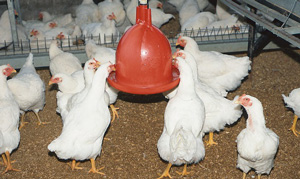
Misalignment of programmes and funding hampers agri-food sector – Official

The Minister of Agriculture Water and Land Reform Calle Schlettwein this week said one of the key challenges facing the agri-food sector is the misalignment of programmes and funding, which can hamper growth and development.
Furthermore, another challenge is the increased food and fuel prices in recent months which has put additional pressure on rural livelihoods in the number of people facing food insecurity and poverty, Schlettwein added.
Schlettwein highlighted this at a food security and agronomic support initiative workshop in Windhoek, adding that for the country to end hunger and malnutrition by 2030, it should promote sustainable agricultural production schemes as well as support small-scale farmers and ensure equal access to land, technology, and markets.
According to him, ending poverty and hunger as outlined in Sustainable Development Goals (SDG) 1 and 2 will only become a reality by aligning efforts and promoting international cooperation.
“Targeted investment in infrastructure, technology, and food production will inevitably lead to improved agricultural productivity. Namibia has enormous potential, not only to feed itself and eliminate hunger and food insecurity but to also be a major player in global food markets,” he said.
The specific interventions that could be pursued to unleash the potential of the sector include, the provision of access to land for investment and private utilization purposes through freehold titles in commercial and leases in communal areas as well as effective utilization of green schemes through leveraging private sector participation, Schlettwein said.
According to Schlettwein, the workshop comes at a critical time for Namibia, as the country faces challenges related to food and nutrition security, particularly among vulnerable communities. Therefore, ensuring food security and nutrition for all is a top priority for the agriculture ministry.
“In Namibia, the situation is even dire, with around 34% of Namibians being food insecure. The COVID-19 pandemic has exacerbated these challenges, making it more important than ever to find ways to strengthen the resilience and adaptation capacities of smallholder farmers and create market linkages for local produce,” he said.











































